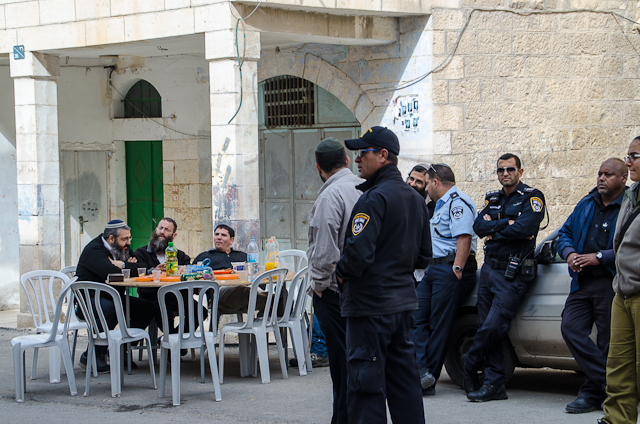Tag: Settlers
-
Settlers attack stopped by farmers in Talfeet
6 March 2014| International Solidarity Movement, Team Nablus| Talfeet, Occupied Palestine Farmers caught a settler cutting down olive trees in Talfeet, delivered him to the Israeli police and lodge a complaint toward him. This morning, at around 10:30, three farmers working on their land in Talfeet caught a settler cutting down ” title=”olive trees”>olive trees…
-

Israeli settlers prevent shop renovation in Hebron
23rd February 2014 | International Solidarity Movement, Hebron Team | Hebron, Occupied Palestine On Sunday the 23th of February at around 9:30 a.m. more than ten settlers forced a Palestinian shop owner to stop renovating his shop. The settlers did this by sitting at tables and chairs they had brought from the nearby Gutnick Center in Hebron, an…
-

Palestinian activists successfully plant 100 olive trees in fields targeted by settlers in South Hebron Hills
15th February 2014 | Operation Dove | Susiya, Occupied Palestine On February 15th, 2014, more than 60 Palestinian men, women and children from the South Hebron Hills and city of Hebron gathered in the Palestinian village of Susiya and together with international and Israeli activists, participated in a nonviolent action organized by the South Hebron…

